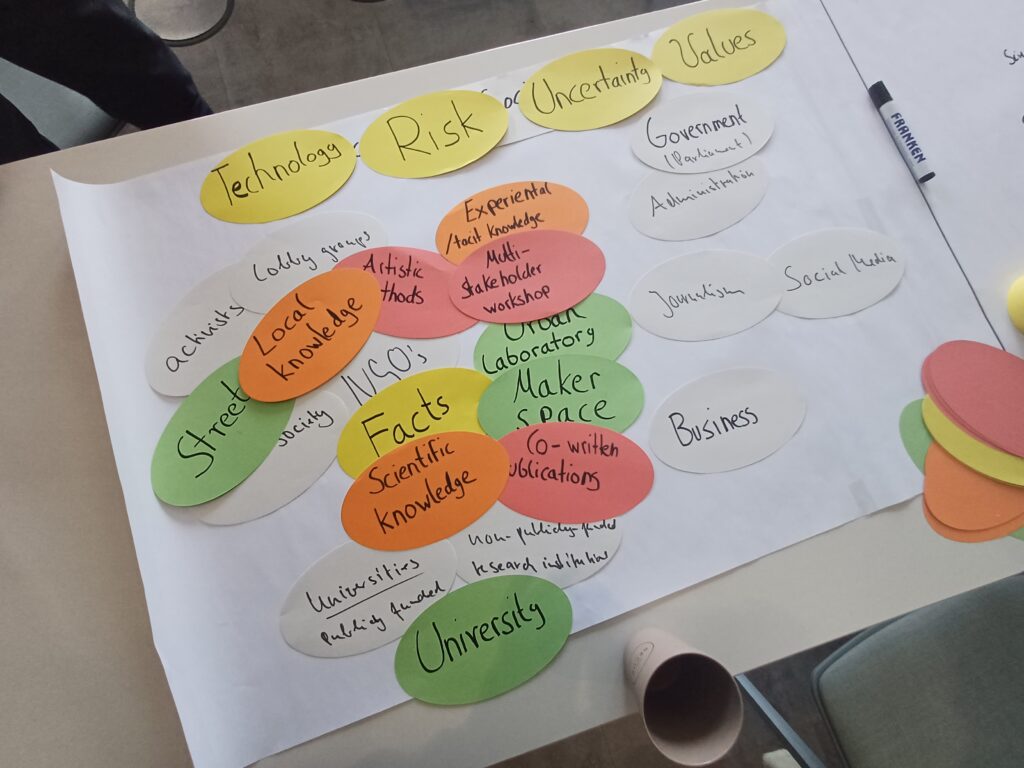On July 6, Nicolas Zehner gave the workshop From Civic Tech to Science: Reimagining Science-Society Relations at the Weizenbaum Institute. Civic tech encompasses a diverse array of empowering technologies that enable democratic participation by allowing citizens to engage with societal issues and contribute to positive change. What insights can science gain from civic tech initiatives? How can they contribute to inclusive knowledge creation? And how can the design of these initiatives help rethink science-society relations? Those were some of the key questions that guided this workshop.
The workshop involved three introductory position statements, each shedding light on different aspects of civic tech’s impact. The position statement on “The Journalism of Things,” exemplified by projects like “Radmesser” and “Bienenlive,” demonstrated how civic tech can impact citizen behavior, raise topic visibility, and foster transdisciplinary knowledge. Dr. Beatrice Jetto’s position statement, “Blockchain-based Civic Tech Ecosystem: Bridging the Gap Between Research and Practice Objectives”, highlighted the potential of blockchain-based civic tech in making citizen participation in urban development more inclusive and transparent. Furthermore, Nicolas Zehner’s statement position, “AI, Environmental Protection, and the Promise of Participation”, discussed how Artificial Intelligence (AI) can serve as a platform for reimagining science-society relations and a gateway to thinking about more global issues by reintroducing the concept of “awareness of uncertainty” as a form of knowledge.
Following the position statements, the workshop engaged participants in group work sessions, facilitating discussions on knowledge transfer beyond conventional science communication. Collaboratively, they explored ways to create infrastructures that foster collaboration and include data subjects, avoiding the reproduction of existing power structures and ensuring equitable civic tech initiatives.
